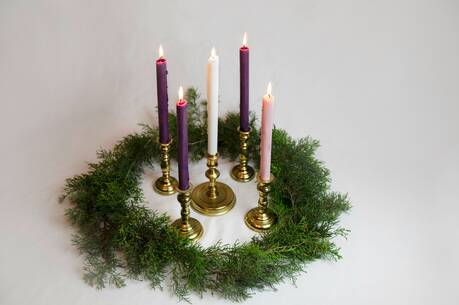Forgiven Sinners
One of the great themes in Luke’s Gospel is forgiveness of sins. As we return this Sunday to the Lectionary readings for Ordinary Time, today’s texts place before us three forgiven sinners: David, Paul and a “sinful woman.” These three figures remind us of the horror of sin and the miracle of divine forgiveness.
While in the Bible David is portrayed as the best of ancient Israel’s kings, he is not perfect. Today’s reading from 2 Samuel 12 describes the prophet Nathan’s condemnation of David’s sin with Bathsheba. David not only had commited adultery with Bathsheba but also successfully plotted to have her husband, Uriah, killed in battle. It is hard to imagine a more despicable sin. On hearing Nathan’s accusation, David recognizes his guilt and says, “I have sinned against the Lord.” Nathan accepts David’s confession and affirms that the Lord has forgiven him. David the forgiven sinner goes on to be the shepherd of Israel, the symbol of his people’s hopes for renewed greatness and the legal ancestor of Jesus.
Paul is one of the great forgiven sinners in the New Testament. Paul persecuted the early Christians and according to Acts 7 participated in Stephen’s martyrdom. Through his encounter with the risen Jesus, Paul’s life changed dramatically. He moved from being the enemy of early Christians to being the champion of their Gospel. In this turn-around Paul came to perceive himself as the forgiven sinner par excellence. He regarded himself as taken over totally by the risen Jesus in a kind of mysticism, “I live, no longer I, but Christ lives in me.”
Today’s reading from Luke 7 contrasts Simon the Pharisee (Jesus’ host) and the “sinful woman” (probably a prostitute). The way in which the story is told illustrates the biblical dynamic of the love of God and forgiveness of sins. Throughout the centuries interpreters have tried to discern whether she was forgiven because she loved Jesus, or did she love Jesus because he forgave her sins. Whether or not this question can ever be decided, the real point of the Lukan narrative seems to be that love of God and forgiveness of sins are inseparable. You cannot have one without the other. The excerpts from Psalm 30 underscore the idea that forgiveness is possible with the God who loves us and whom we love in return.
In the interpretive tradition, the “sinful woman” of Luke 7:36-50 has often been identified as Mary Magdalene, mainly out of the proximity of this episode to the list of women who followed Jesus in Luke 8:1-3. However, there Mary Magdalene is described as the recipient of healing actions presumably by Jesus, not as a reformed prostitute. The mention of the women followers of Jesus here indicates that they accompanied Jesus along the way, heard what he said as addressed to them too and saw what he did up to and including the passion. In the Gospels Mary Magdalene is primarily the most faithful follower of Jesus and even the “Apostle to the Apostles” at Easter.
This article also appeared in print, under the headline “Forgiven Sinners,” in the June 4, 2007, issue.







